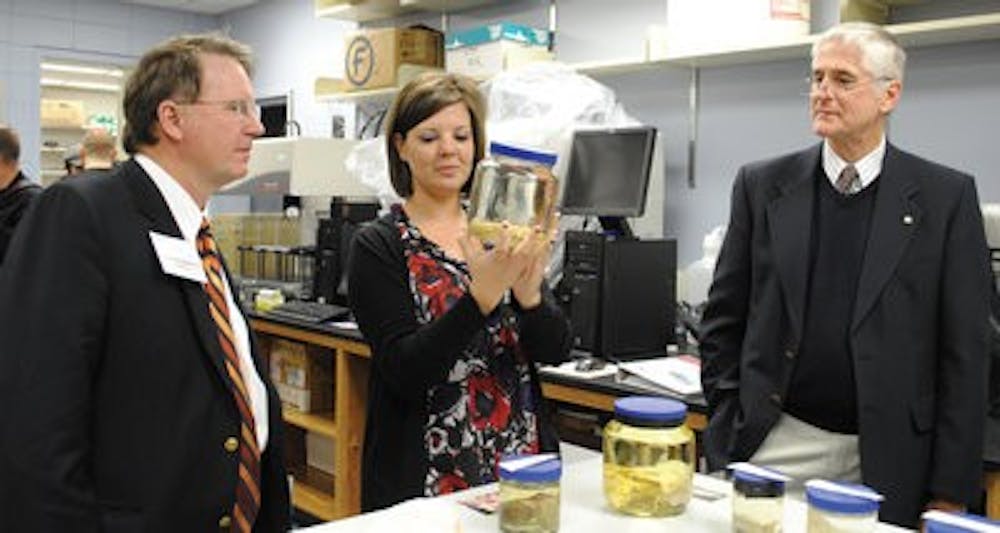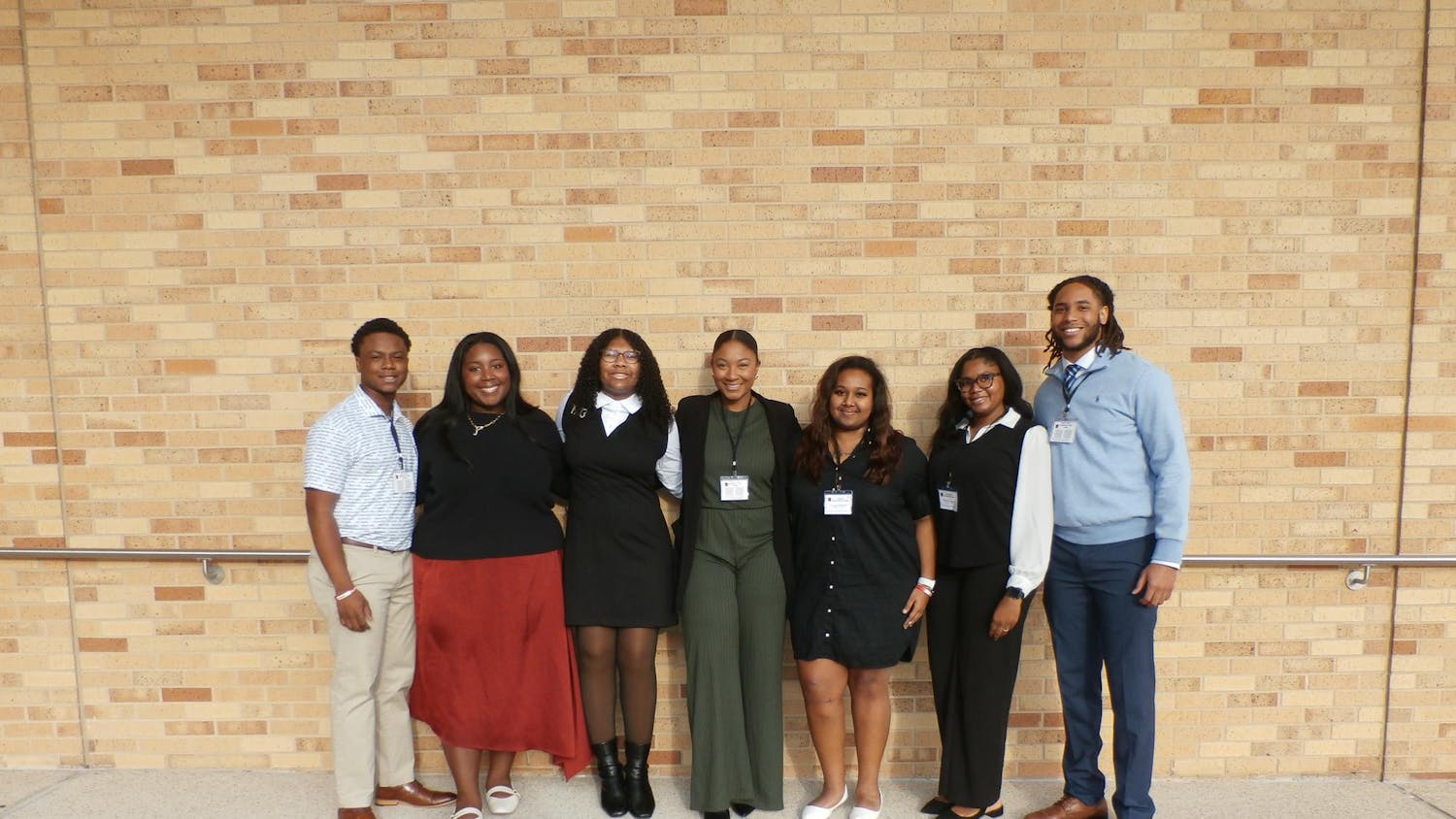The biological sciences department of the College of Science and Mathematics dedicated the new Molette Environmental and Climate Change Laboratory Friday.
The lab, located in the Rouse Life Sciences Building, was named in honor of William Molette, a 1927 electrical engineering graduate of Auburn, and his wife Ruth.
The Molettes left a $2.7 million estate to COSAM to be used for scientific research.
Faculty member Scott Santos said approximately $142,000 of the bequest was apportioned to renovate an unused classroom, expand the old laboratory and create the Molette Laboratory.
"When this space became available as a potential area to expand the lab into, the department and COSAM were, again, very supportive in providing the funding for the renovations," Santos said.
Larry Wit, associate dean of COSAM, opened the dedication with a welcome and a memorandum on the late Dean Marie Wooten's involvement with the venture.
"She was a person that had great vision," Wit said. "She was also the master at bringing groups together on a project and getting them to cooperate to get something done."
Department faculty members Santos, Kenneth Halanych and Kevin Fielman will be co-directors of the Molette Lab, where their once-separate labs will be conjoined for cooperative research.
The three professors were integral in acquiring research grants that will support the new lab.
"The three of us had already started working a lot together, and our students interacted a lot," Santos said. "We started talking about, 'Well, why don't we combine forces?' and that makes a bigger stronger lab."
Santos' research focuses on the conservation of tropical habitats. Halanych's research focuses on the evolution of marine invertebrates, and Fielman's research focuses on physiology, the function of organisms.
Halanych said it is both the compatibility of their fields and their use of similar research techniques that enable them to work together effectively.
Santos said one practical benefit of the collaboration in the Molette Lab is their research can be more competitive for funding.
"The more interesting and actually exciting side is, by combining efforts, we can ask different types of questions and we can answer questions more thoroughly and meaningfully," Santos said.
In his address to the dedication's attendees,
Jack Feminella, chair of the Department of Biological Sciences, said the lab and its directors were a student-centered collaboration.
"I think more than anything else, what made us start talking about combining labs was getting the students together so they could interact with each other and learn from each other, as well as us," Halanych said.
Joie Cannon, graduate student in biological sciences, said the new lab fosters teamwork and effectiveness in research.
She also said that the space and new equipment created a more helpful work environment.
"During the transition, we had been using the classroom as sort of transient lab space, but this is much more efficient," Cannon said.
Santos said he hopes they advance the work they have begun with the Molette Lab.
"The other hope I would have is that we can be a successful group, such that we can provide a role model to the Auburn community," Halanych said. "Not that we're the center of attention, but that by us being able to come together and do this, hopefully it will help other aspects of Auburn research go up."
Do you like this story? The Plainsman doesn't accept money from tuition or student fees, and we don't charge a subscription fee. But you can donate to support The Plainsman.





